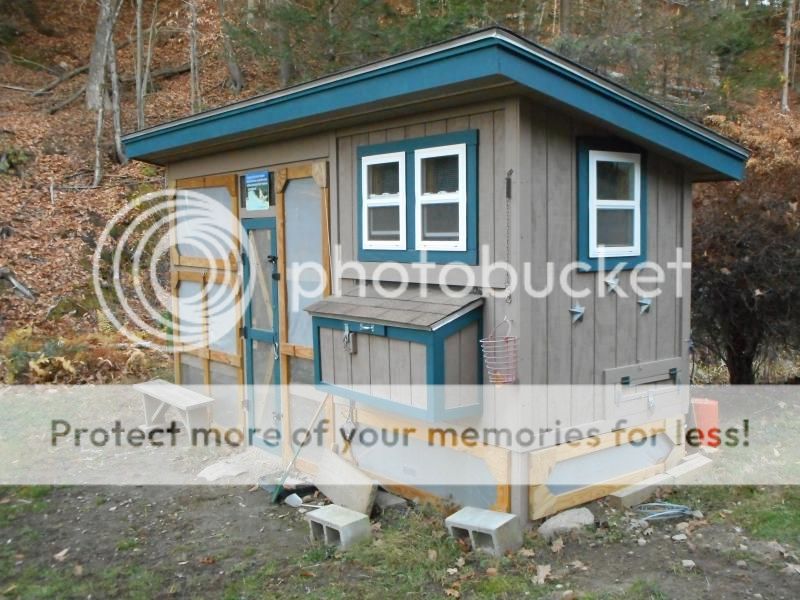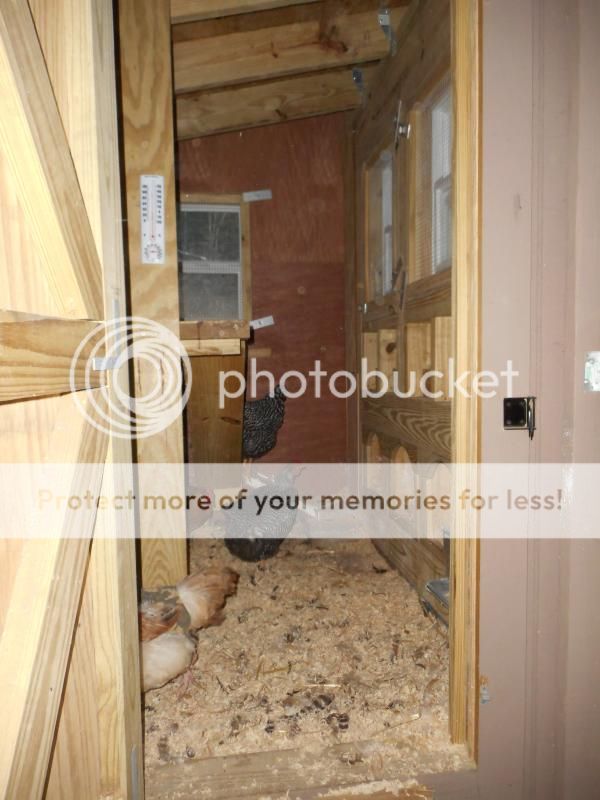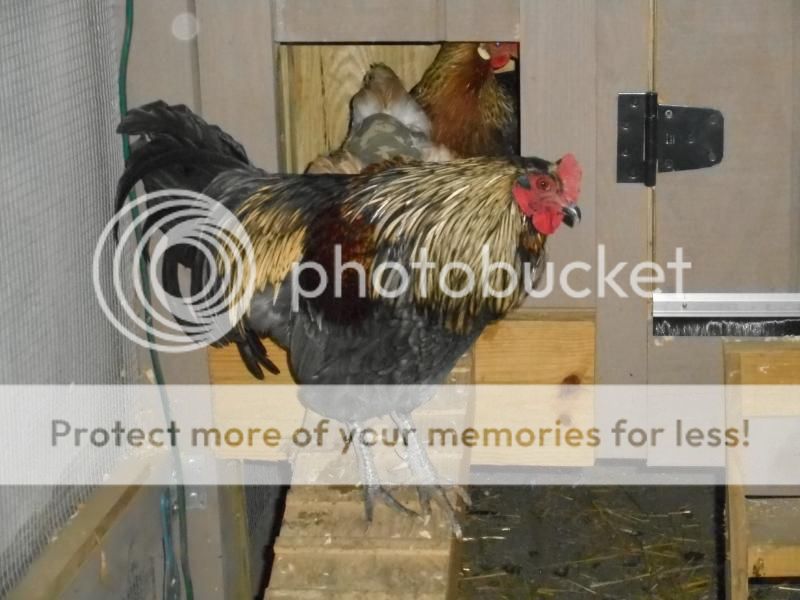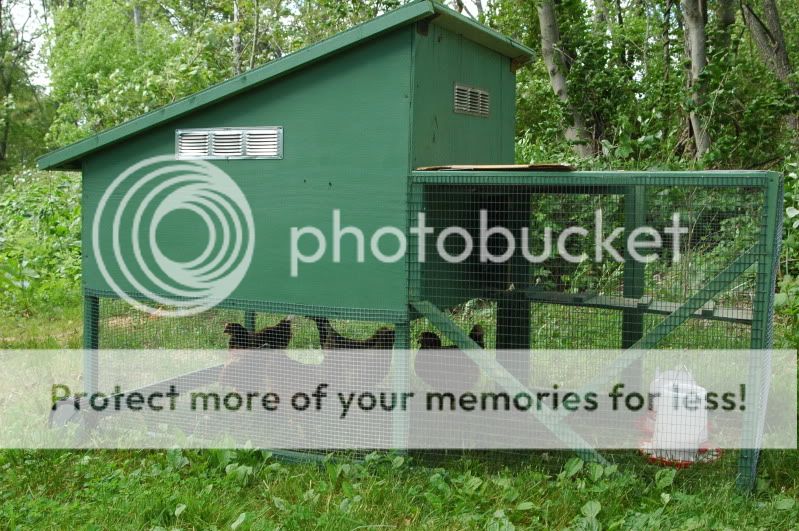Craig:
Cost in $ and time?
I think the costs came to around $4000.00 in materials + 6 or 7 days labor (overall) involving 2 people.
We let the chickens out in the warm weather to roam the property, and also when the weather permits in the winter. There are a lot of predators in our neck of the woods, so there was also a lot of protection incorporated into the coop design.
The aftermath:

This is the solid-pigment stained exterior (not paint) with the winter Panels installed (7 mil poly + Plexi-glass on some lower panels. I have the plexi for the narrow front & side panels under the coop, that will replace the poly there). I just have to find the time to do that = so that the chickens can see out:

- The windows have predator-mesh (in-frame panels) installed over windows - using aluminum turn-paddles for easy removal & to open & close the windows (we have them open in the summer for ventilation).
- The coop-stairs & the chicken-door ramp are set onto angle-cut cleat-systems for easy removal.
- The narrow slot-looking door on the exterior right side is where a laminate-covered panel is (that is under the roosts) and can be slid-out and easily cleaned-off.
- The coop walls & floors are insulated with rigid foam board.
- The roosts are 2x4 laid on the flat (is more comfortable for the birds to sleep on) than poles.
- All materials are PT and T1-11 panels.
- There are soffit vents both in the coop & the run that are left open in the summer, and are closed-off in the winter.
- I had my Electrician install an underground run for lighting (on timers) and for the water-pan heater (in winter).
- There is a gutter on the backside of the sloped roof that takes the rain & snow water run-off away from the coop, using a grade-level extension to it.
- The feeder is hung from a chain, slightly above the ground (the water is also hung too in the summer, but sits on a metal heat-pad, on a concrete paver, in the winter). The hanging is too keep the dirt & debris out of them = because the chickens will scratch and kick-up the interior run floor.
- The interior chicken door is on a rope & pulley-system (with a rope running to the exterior).
- There are multiple locks & latches (raccoons have little hands that can get into everything).
- The main entry door has self-closing hardware, and also a chain with hook & loop to allow it to be left open (when the birds are allowed to roam).
- Last, there are the weather-panels that are removed in the summer, and installed in the winter (as mentioned earlier).
- The screen = is galvanized HARDWARE CLOTH (with heavier grade wire-grid along the lower 2' and is rolled under ground around the coop & run). - The Hardware Cloth is what should be used (and not chicken wire).
Some of the functional aspects were dictated by the wife (Cowgirlup on this forum).
We live in the sticks, in a little valley, on the side of a large hill. So we can sometimes get strong winds during harsh storms.
With that in mind, the structure was built using 12" x 4' concrete footings & conventional building code-type framing methods (I am a MA state licensed GC).
I am also cursed by the fact that I am the son of an engineer, and have the same "sickness" that everything has to be built perfectly, and every minutia of detail taken into consideration. I am aware that I can get carried away = and I will sometimes drive myself nuts.


Pic of the Rooster:












